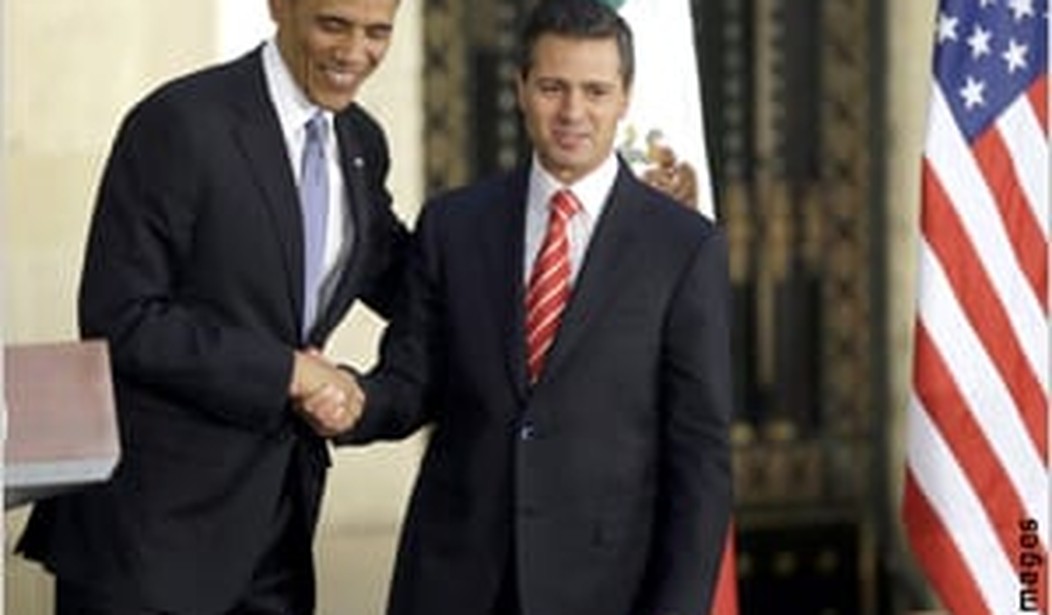WASHINGTON – Leaders from across Latin America expressed both their support and appreciation for President Obama’s decision to implement immigration standards that will offer some relief to about 5 million undocumented workers who have crossed into the United States.
Guatemala President Otto Perez Molina told reporters in Guatemala City that the executive order signed by Obama that would, among other things, permit the alien parents of children born in the U.S. as long as they meet certain requirements should benefit 100,000 Guatemalans.
“We are grateful and we endorse the decisions made by President Obama,” Perez Molina said at a press conference.
The Guatemalan president noted that the Obama plan also includes provisions tightening border security, leading him to warn potential illegal émigrés “will now be more at risk of being caught and deported immediately.”
“Guatemalans go there to work and work hard to support their families and we hope that deportations of Guatemalans are going to be very few,” Perez Molina said.
In Mexico City, President Enrique Pena Nieto told reporters that Obama’s immigration actions constitute “the most important measures taken in several decades.”
“This is an act of justice that recognizes the great contribution of millions of Mexicans to the development of our neighbor,” Pena Nieto said.
The office of Honduras President Juan Hernandez in Tegucigalpa released a statement thanking Obama for issuing the order, saying it “sends a powerful message of solidarity with Latin America.”
The relief offered to Hondurans “is a great step in the right direction from the United States to resolve the migratory issues of 11 million people.” Hernandez proceeded to call on Congress to adopt wide-ranging immigration reform legislation that would finally settle the persistent issue.
Hernandez noted about 1 million Hondurans currently reside in the U.S. – more than half of them undocumented.
Hugo Martinez, the foreign minister of El Salvador, said from San Salvador that the government also was “satisfied” with the announcement, maintaining that “many of our compatriots will have temporary relief regarding the migratory situation.”
Latin America has long been the largest source of undocumented individuals entering and residing in the United States. A report from the Pew Hispanic Center found that in 2008 12.7 million immigrants from Mexico lived in the U.S. and that more than half of them were undocumented.
Unauthorized immigrants from Mexico, accounting for about half of the undocumented population in the U.S., stand to benefit the most from Obama’s decision, according to the center. About 44 percent of the unauthorized immigrants from Mexico who have crossed the border could apply for deportation protection under the new programs compared with 24 percent of those from other parts of the world.
Obama’s program “could affect about 4 million total unauthorized immigrants who will be eligible for deportation protection and a three-year work permit,” Pew reported. The largest group — at least 3.5 million, according to estimates of 2012 data – “consists of unauthorized immigrant parents who have lived in the U.S. for at least five years and have children who either were born in the U.S. or are legal permanent residents. Of these, about 700,000 have adult children and the remaining 2.8 million have children younger than 18.”
The new policy also expands eligibility for the president’s Deferred Action for Childhood Arrivals (DACA) program that benefits young adults brought to the U.S. illegally as children. The program would allow an additional 330,000 people, according to Pew estimates, to apply for and receive temporary deportation relief. Previously, the program was available only to those up to age 30, but the executive action would lift that age cap. In addition, the program would allow immigrants who arrived as children illegally before Jan. 1, 2010, to become eligible, expanding the program beyond the original June 15, 2007, cutoff date.
While work permits and deportation relief will be available, those covered by the programs will not be eligible for certain government benefits, including subsidies for healthcare under the Affordable Care Act. The executive order increases the number of visas for skilled workers and spouses of green card holders. Other changes focus on the deportation of felony offenders.
Even though about 4 million unauthorized immigrants may be eligible for deportation relief, according to Pew, it remains to be seen how many people will apply for and receive it. Under the 2012 DACA program, an estimated 1.1 million people ages 30 or younger were eligible for deportation relief and a two-year work permit. Through June 30, 2014, only about 712,000 applied.
A recent Pew Research Center survey determined that Latinos place a priority on the relief from deportation offered by the executive action. They maintain that it is more important that unauthorized immigrants be able to live and work in the U.S. without threat of deportation than have a pathway to citizenship by a 56 percent to 35 percent margin.
Pew said nearly 31 million Latinos in the U.S. self-identify as being of Mexican origin, representing two-thirds of all U.S. Latino population. Pew said Mexicans are not only the largest Latino origin group in the U.S. but the youngest with a median age of 25.
Jose Miguel Insulza, secretary general of the Organization of American States, said Obama displayed “courage” in deciding to “move forward toward a fair goal that did not deserve to be further postponed.”
The president, Insulza said, “recognizes the contribution that these millions of workers make every day to the greatness of the United States and the need to normalize their presence in the country.” The executive order, he added, “distances them from illegality and brings them closer to a life of dignity in this country.”
Central American leaders in September mutually settled on a plan to enhance economic growth in the region and slash illegal immigration. The plan centers on significant infrastructure spending and energy projects.









Join the conversation as a VIP Member